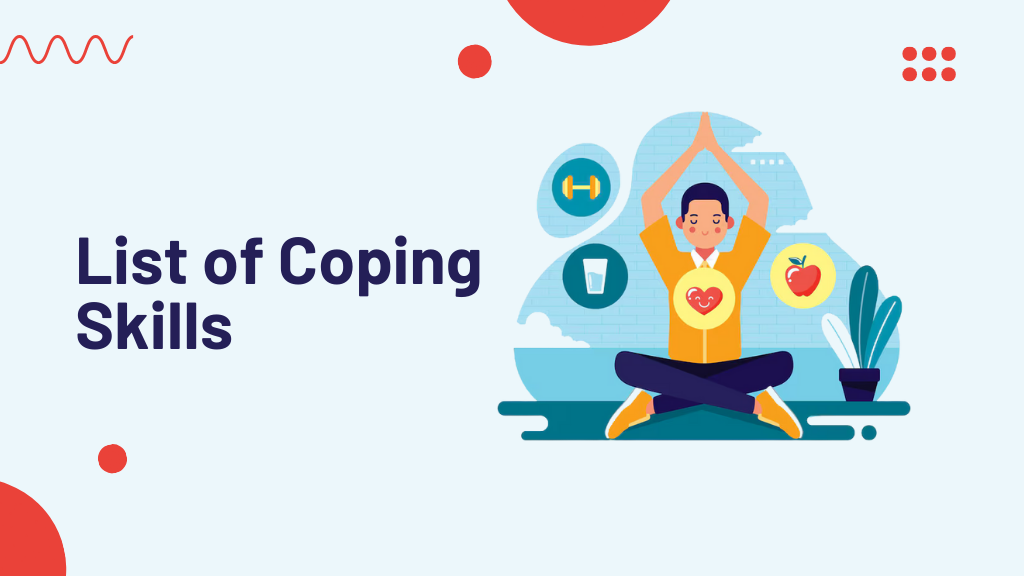Stress, anxiety, and emotional challenges are part of life, but how we respond to them determines whether we overcome difficulties or become overwhelmed. Developing healthy strategies can make a significant difference in building resilience and maintaining emotional well-being. A thoughtfully created list of coping skills helps individuals manage stress, regulate emotions, and navigate challenges with clarity. These skills are not one-size-fits-all but rather a diverse set of tools that can be adapted to different situations, providing stability and balance when life feels unpredictable.
What Are Coping Skills?
Coping skills are strategies and techniques people use to deal with stress, negative emotions, and difficult circumstances. They work by helping individuals regain control of their reactions and reduce the intensity of overwhelming feelings. While some coping strategies provide immediate relief, others work best over time, building long-term resilience. It is important to distinguish between healthy and unhealthy coping methods. Healthy coping promotes well-being, personal growth, and stability, while unhealthy habits may provide short-term comfort but often create further problems in the future.
The Importance of Developing Coping Skills
Everyone encounters stressors, whether it is academic pressure, work deadlines, family responsibilities, or personal struggles. Without the right strategies, these challenges can build up and negatively affect both physical and mental health. Developing coping skills provides individuals with constructive outlets for emotions, reduces harmful behaviors, and strengthens their ability to handle setbacks. More importantly, having a wide range of coping skills offers flexibility. Since one technique may not always work in every situation, having multiple options ensures that a person can respond in healthier ways when difficulties arise.
List of Coping Skills
Coping skills can be categorized into different types based on the strategies they use. These categories highlight the variety of approaches available and allow people to choose methods that align with their personality and needs.
Problem-Focused Coping
Problem-focused coping involves directly addressing the source of stress. This strategy is about taking action, making changes, or solving issues that create difficulty. For example, if someone is stressed about an upcoming exam, studying consistently and organizing a schedule would be a form of problem-focused coping. This type of coping is highly effective when stressors can be controlled or eliminated through action.
Emotion-Focused Coping
Emotion-focused coping is about managing the feelings that come with stress rather than the stressor itself. Sometimes, challenges cannot be solved immediately, such as grieving the loss of a loved one. In such cases, coping focuses on soothing emotions through activities like journaling, meditation, or talking with a supportive friend. Emotion-focused strategies help regulate emotional responses, making it easier to face difficult realities with strength.
Avoidance Coping
Avoidance coping refers to efforts to escape or ignore stressful situations. While it might provide short-term relief, overreliance on avoidance can lead to bigger problems in the long run. Examples include procrastination, denial, or distraction through unhealthy habits. However, in moderation, avoidance can sometimes be useful, such as taking a temporary break to gather energy before tackling a problem.
Healthy vs. Unhealthy Coping Skills
Healthy coping skills include strategies like physical activity, mindfulness, and positive self-talk that improve well-being over time. Unhealthy coping, such as substance use, excessive screen time, or self-isolation, may temporarily relieve stress but often damage health and relationships. Recognizing the difference helps individuals make better choices and commit to strategies that build resilience instead of eroding it.
Emotional Coping Skills
Practicing Mindfulness
Mindfulness is about staying present and observing thoughts and feelings without judgment. It trains the mind to focus on the current moment rather than worrying about the past or future. Mindfulness reduces stress and helps regulate emotions, making it a powerful emotional coping skill.
Journaling for Clarity
Writing down emotions allows individuals to process and release feelings that may otherwise build up. Journaling provides insight into thought patterns, emotional triggers, and possible solutions. Over time, this practice develops greater self-awareness and emotional stability.
Creative Expression
Engaging in creative activities like drawing, singing, dancing, or playing an instrument gives emotions a constructive outlet. Creative expression provides relief, promotes relaxation, and often results in a sense of achievement that boosts mood.
Behavioral Coping Skills
Physical Activity and Exercise
Movement has proven benefits for reducing stress hormones and improving overall well-being. Whether it is running, yoga, swimming, or even a brisk walk, physical activity provides both immediate and long-term stress relief. Exercise also improves sleep and boosts confidence, making it one of the most effective coping skills.
Creating a Daily Routine
Structure brings order to chaotic times. Establishing a healthy routine that includes consistent sleep, regular meals, work, and relaxation helps reduce uncertainty. This sense of predictability creates comfort and stability when life feels overwhelming.
Engaging in Enjoyable Hobbies
Pursuing hobbies offers a distraction from stress and allows individuals to immerse themselves in something enjoyable. Reading, cooking, gardening, or exploring new skills provide moments of joy that balance negative emotions and reduce burnout.
Cognitive Coping Skills
Reframing Negative Thoughts
Cognitive coping involves how we think about challenges. Reframing negative thoughts means shifting perspective and finding constructive ways to interpret situations. Instead of focusing on failure, individuals can view setbacks as learning opportunities. This simple shift builds resilience and optimism.
Practicing Gratitude
Gratitude encourages focusing on positive aspects of life instead of dwelling on what is missing. Keeping a gratitude journal or reflecting on daily blessings helps foster optimism, improve mood, and reduce stress.
Visualization and Guided Imagery
Visualization is the mental practice of imagining peaceful or empowering scenarios. Guided imagery exercises transport the mind away from stressors and replace them with calming thoughts. This mental tool reduces anxiety and helps build emotional strength.
Social Coping Skills
Talking with a Trusted Friend
Sometimes, sharing emotions with a supportive person can make all the difference. Talking openly with a friend provides validation, comfort, and perspective. It reduces isolation and strengthens emotional connections.
Seeking Professional Help
Therapists, counselors, and support groups provide valuable tools for navigating stress, trauma, or long-term emotional difficulties. Professional guidance empowers individuals to address underlying issues and build healthier coping strategies.
Building a Support Network
Strong, positive relationships provide encouragement during tough times. A supportive network of family, friends, or community members creates a safety net, making stress more manageable and less isolating.
Spiritual Coping Skills
Meditation and Prayer
For those who embrace spirituality, meditation and prayer provide comfort and a sense of connection. These practices create calm, offer hope, and provide strength in the face of adversity.
Connecting with Nature
Spending time outdoors reduces stress and restores balance. Nature encourages grounding, reflection, and a deeper sense of peace. Activities such as walking in a park or sitting near water nurture both mental and emotional health.
Building a Personalized Coping Toolkit
Every individual responds differently to stress, which is why building a personal coping toolkit is essential. Experimenting with different methods helps identify what brings the most relief and long-term benefits. Over time, this personalized set of coping skills becomes a reliable resource for handling future challenges.
FAQs
What are coping skills?
Coping skills are strategies people use to manage stress and emotions in healthy, constructive ways.
What types of coping skills exist?
The main types include problem-focused coping, emotion-focused coping, avoidance coping, and distinctions between healthy and unhealthy coping strategies.
How do I know which coping skills work best?
Through practice and reflection, individuals can test different strategies and recognize which ones provide the greatest relief and stability.
Can unhealthy coping be replaced with healthy strategies?
Yes, harmful habits like avoidance or substance use can be gradually replaced with healthier alternatives through consistency and practice.
Do coping skills always work?
Effectiveness varies from person to person, but with patience, persistence, and sometimes professional support, coping skills provide meaningful benefits.
Conclusion
Developing effective strategies to manage stress and emotions is essential for mental and emotional well-being. A carefully created list of coping skills allows individuals to explore multiple approaches, from emotional and cognitive techniques to behavioral, social, and spiritual practices. By experimenting with different methods and building a personal coping toolkit, anyone can develop greater resilience and face challenges with strength. Over time, practicing these coping skills consistently leads to improved balance, healthier relationships, and a stronger sense of inner peace.





